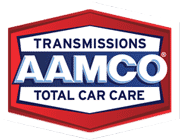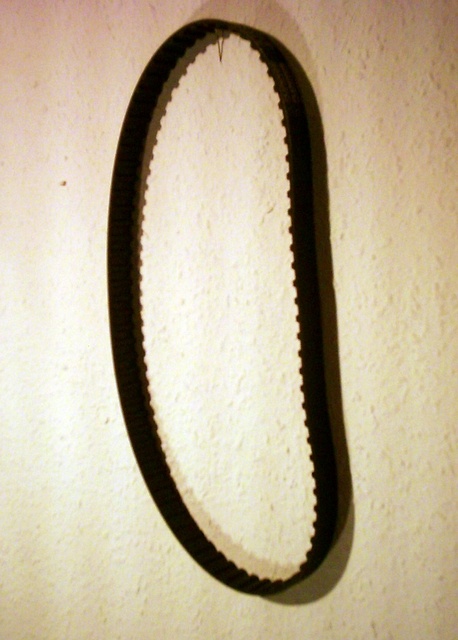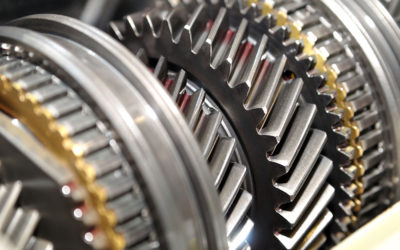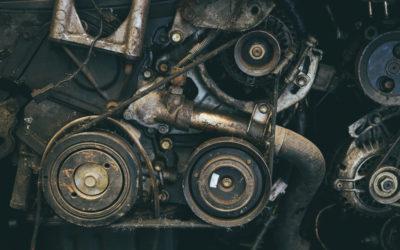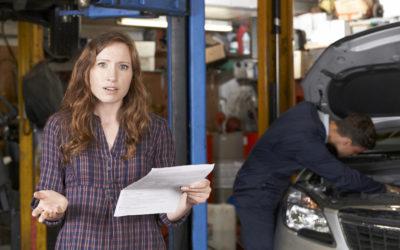Timing Belts & Timing Chains…What’s The Difference?
Depending on your car or truck’s engine, you either have a timing belt (think a heavy-duty rubber belt) or a timing chain (think a bicycle chain that fits into gears with teeth).
Here is what you need to know about timing belts and chains, and what to do if it’s time for repairs.
Related Article: Tips to Maintain an Older Car
Timing Chains
Timing chains are not used as much as they were in the past. First, they are more expensive to manufacture, they can stretch over time, and require oil to keep lubricated. The main reason why they are still used is that timing chains can often handle much more powerful engines, such as high performance cars and commercial trucks.
Timing chains are very strong, and most of them will last for the lifetime of your car or truck. But if they fail, they can fail in a catastrophic way. Think about having a metal chain being flung around at high speed inside the hood of your car, and banging against the engine. Not ideal. Timing chains, if they fail, can be pretty expensive to replace. You’ll likely need to also replace the timing gears at the same time.
Timing Belts
Auto manufacturers started using timing belts because they are much less expensive to manufacture and they run more quietly. Timing belts usually have rubber “teeth”:
Most normal car users (not hotrod racers or performance car people) tend to prefer quieter cars. Timing belts run much more smoothly than a timing chain.
The issue is that timing belts will break. They are made out of rubber and fiber, and they will slowly deteriorate from being exposed to oil, gas and heat. (All of which are present near the engine of your car or truck.)
And while a metal timing chain will stretch or loosen over time, belts will often just break suddenly. They’ll stay tight without damaging much (like timing chain teeth for a timing chain), but when they go, they’ll go.
The good news is that belts are much easier to replace than a timing chain. Depending on your car or truck, timing belts need to be changed every 40,000 or 60,000 miles. Some newer cars have timing belts that don’t need to be replaced until 100,000 miles.
Replacing Timing Belts
f you don’t replace your timing belts according to the manufacturer’s schedule, you risk a few things happening to your car or truck:
First, if it snaps at a bad time, your car or truck is just not going to go anywhere. Basically, there’s no way for your engine to transfer any of the rotational energy to your tires. Think about a time when you were riding a bicycle and the chain slipped off the gears. You can still steer, your brakes work, but your motor (your legs) no longer have any connection to the gears, and subsequently, the ability to make the tires go round and round. So, you’re going to probably be stuck wherever you are.
Second, a belt that snaps or breaks can fling itself around by the engine and damage things. Even though it’s made of rubber (unlike a timing chain that’s made out of metal), it can still do damage to the internal components in your car. Better to replace it according to the schedule from your car or truck manufacturer, than it is to have it snap and do a lot more damage inside the hood of your car.
Related Article: 4 Signs Your Timing Belt is Failing
Time For New Timing Belts or Chains? AAMCO Minnesota Can Help
Worried about your timing belt? Hearing strange noises? Engine misfiring? The good news is AAMCO Minnesota is here for you. It’s easy to call or book an appointment online. Our expert mechanics are here to check and replace your timing belt, as well as complete any other repairs you might need. Those who know, go to AAMCO.
More from our Blog
5 Symptoms that May Point to Your Power Steering Failing
Love cruising down winding roads? Or do a lot of city driving? Then you know the importance of proper steering and precise handling while driving. As parts in your car’s power steering system wear out or the system starts to fail, there are several common symptoms to...
Common Signs You May Be Due for a Transmission Repair
Don’t let transmission trouble throw a wrench in your day. You can avoid more serious transmission repairs by paying attention to the signs and symptoms that your transmission may need attention from a professional mechanic. Some of the early signs are easy to push...
5 Common Reasons Why Your Steering Wheel is Sticking
Whether you love cruising down winding roads or simply need to navigate city streets, you understand the importance of precise steering. If your steering wheel feels stiffer than usual or starts sticking, it can easily get in the way of your car making turns as it...
5 Symptoms that May Point to Your Power Steering Failing
Love cruising down winding roads? Or do a lot of city driving? Then you know the importance of proper steering and precise handling while driving. As parts in your car’s power steering system wear out or the system starts to fail, there are several common symptoms to...
Common Signs You May Be Due for a Transmission Repair
Don’t let transmission trouble throw a wrench in your day. You can avoid more serious transmission repairs by paying attention to the signs and symptoms that your transmission may need attention from a professional mechanic. Some of the early signs are easy to push...
5 Common Reasons Why Your Steering Wheel is Sticking
Whether you love cruising down winding roads or simply need to navigate city streets, you understand the importance of precise steering. If your steering wheel feels stiffer than usual or starts sticking, it can easily get in the way of your car making turns as it...
3 Questions to Determine if You Should Finance Your Transmission Repair
It’s no secret transmission repairs can be expensive. After bringing your car to a transmission shop for diagnostics, how do you know if you should finance your transmission repair? There are a few questions to ask yourself and your mechanic to determine the best...
Schedule An Appointment

Find Your Local Minnesota AAMCO
Call or book an appointment online.
Each AAMCO Minnesota Transmission & Auto Repair Shop is independently owned and operated. Looking for transmission repair services in the Minnesota Twin Cities area?
Navigate our Blog
Recent Posts
Categories
- AAMCO Diagnostics Center
- Air Conditioning
- Blog
- Brakes
- Brakes, Tires, & Suspension
- Check Engine Light
- Colorado Automotive Advice
- Community Involvement
- Electrical
- Electrical
- Engine
- Exhaust System
- Featured Articles
- Infographic
- Maintenance
- Muffler
- Muffler & Exhaust
- news
- Oil Change
- Online Mechanic
- Radiator
- Radiator & Cooling System
- Safety
- Services
- Suspension
- Suspension System
- Total Car Care
- Transmission
- Transmissions
- Videos
